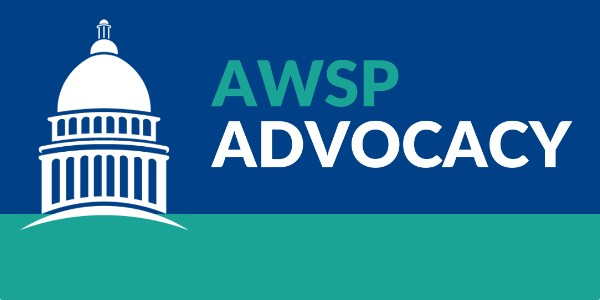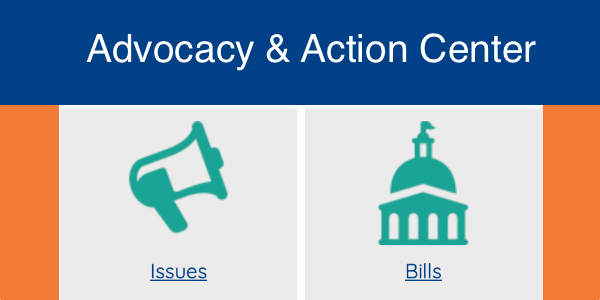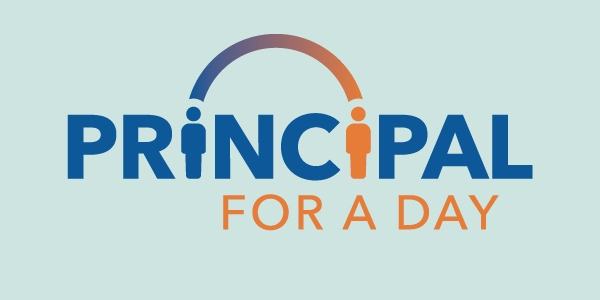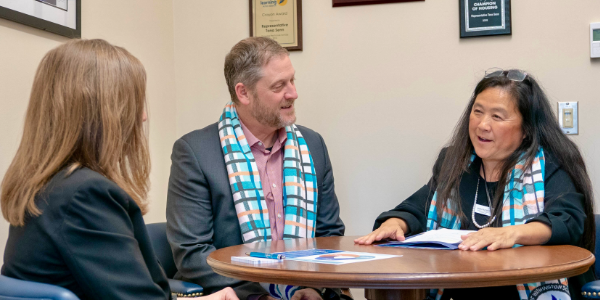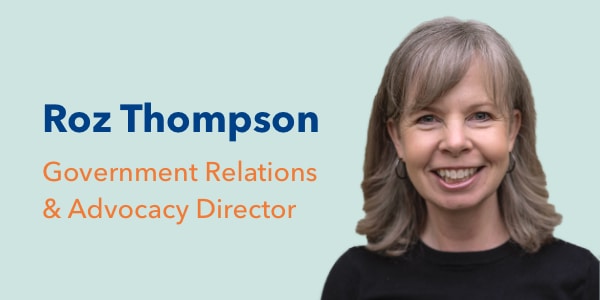Sine Die approaches and a sense of glee and panic pervades the air as multiple bills either pass or fail to advance. Concurrence, recession, and just plain obstruction are on display.
Multiple bills, close to 400, will be sent to the Governor who is even now in the process of signing them. To date, there have been no vetoes.
Below is a summary of what is known. A year-end, post-Session report will be more definitive.
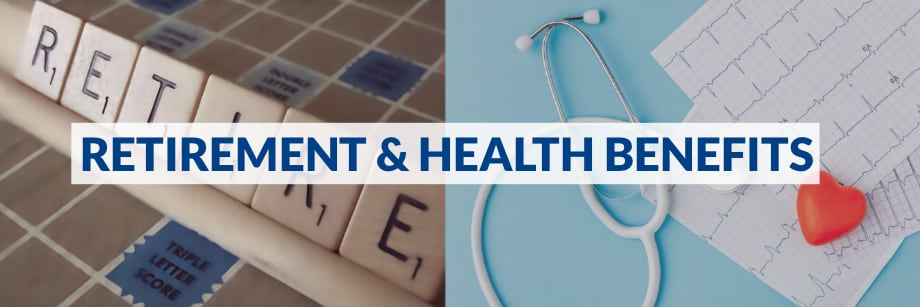
"The future is uncertain, but the end is always near."
- Jim Morrison
Sine Die approaches and a sense of glee and panic pervades the air as multiple bills either pass or fail to advance. Concurrence, recession, and just plain obstruction are on display.
Multiple bills, close to 400, will be sent to the Governor who is even now in the process of signing them. To date, there have been no vetoes.
Below is a summary of what is known. A year-end, post-Session report will be more definitive.
Retirement Related Proposals
HB 1008: Concerning participating in insurance plans and contracts by separated Plan 2 members of certain retirement systems.
Comment: It allows certain individuals who separate from a position covered by the Public Employees', School Employees', and Teachers' Retirement System Plans 2, without retiring, the opportunity to participate in retiree benefits of the Public Employees' Benefits Board.
This bill has been sent to the Governor for action.
SHB 1056: Repealing some postretirement employment restrictions.
Comment:Changes the postretirement employment restrictions on benefits eligibility for Public Employees' Retirement System, Teachers Retirement System, and School Employees Retirement System Plans 2 and 3 members that retired under the 2008 Early Retirement Factors (ERFs). • Permits 2008 ERF members to work in retirement system–covered employment for up to 867 hours per year without suspension of retirement benefits. • Adjusts benefits for individuals that chose the 3 percent per year early retirement reduction to the level of reduction in the 2008 ERFs for future benefit payments. Effective 1/1/2024.
The Senate adopted a striker with an amendment that reads: Removes the recalculation of retirement benefits for retirees that were eligible to take a 2008 early retirement factor but took a higher reduction in benefits so that they could return to work.”
The House has asked the Senate to recede from its amendments and it did. The bill then passed 47/1/1. It will sent to the Governor for his signature.
ESSB 5294: Concerning actuarial funding of state retirement systems.
Comment: Beginning July 1, 2027, a new minimum UAAL rate is established for both TRS 1 and PERS 1 of 0.5 percent. The scheduled payment of $800 million into the TRS 1 fund is reduced to $250 million.
This bill passed the House as amended and was sent back to the Senate for concurrence. The Senate did not concur. The house receded from its amendment and the bill passed. It has been sent to the Governor for his action.
SB 5350: Providing a benefit increase to certain retirees of the public employees' retirement system plan 1 and the teachers' retirement system plan 1.
Comment: A one-time, 3 percent benefit increase is provided to PERS plan 1 and TRS plan 1 retirees up to a maximum of $110 per month. The benefit increase goes into effect on July 1, 2023. To be eligible for the increase the member must be retired on or before July 1, 2022. This increase only applies to members that are not receiving a minimum benefit. The Select Committee on Pension Policy is directed to study and recommend an ongoing COLA for plan 1 retirees. The recommendation must consider employer contribution rate stability and coordinate the effective date with the reduction or elimination of the unfunded actuarial accrued liability.
The House receded from its amendments and the bill has been sent to the Governor. reconsider.
Other Areas of Potential Fiscal Impact (and often unfunded) to Districts
SHB 1068: Concerning injured workers' rights during compelled medical examinations.
Comment: Allows an injured worker to make an audio and video recording of an independent medical examination, and to have one person of the worker's choosing present during the examination.
This bill was amended, then approved by the Senate. One adopted amendment reads, “Requires (1) the worker to provide seven calendar days' notice to the entity scheduling the exam that the independent medical exam will be recorded and (2) the department of labor and industries to adopt rules to define the notification process. Another adopted amendment reads, “Removes the prohibition on recording neuropsychological exams. Prohibits the worker from materially altering the recording or posting it to social media.”
The House concurred and this bill has been sent to the Governor.
ESHB 1106: Concerning qualifications for unemployment insurance when an individual voluntarily leaves work.
Comment: Expands access to unemployment insurance benefits by adding circumstances where a person may voluntarily quit for a good cause. Senate adopted amendments expands access to unemployment insurance (UI) benefits by adding circumstances where a person may voluntarily quit for good cause and requires a report to the legislature regarding UI claims related to benefits for separations from employment because of inaccessible care for a child or vulnerable adult. Another adopted amendment provides that benefits paid because care for a child or vulnerable adult in the claimant's care is inaccessible shall not be charged to the experience rating account of any contribution paying employer.
The House concurred and the bill has been sent to the Governor.
ESHB 1187: Concerning privileged communication between employees and the unions that represent them.
Comment: Creates a privilege from examination and disclosure for a union representative and a union employee concerning any communication between the union representative or union employee made during union representation and creates exceptions to this privilege. • Applies the privilege from examination and disclosure to the union members and organizations that represent employees of college districts, employees of school districts, public employees, faculty at public four-year institutions of higher education, civil service employees, ferry employees, port employees, and labor unions.
The House concurred with the Senate amendments and the bill has been sent to the Governor.
SHB 1200: Requiring public employers to provide employee information to exclusive bargaining representatives.
Comment: The bill requires certain public employers to provide exclusive bargaining representatives employee information, such as contact information, date of hire, salary, and jobsite location, of employees in bargaining units if the employer has that information in its records. It allows an exclusive bargaining representative to bring a court action if a public employer fails to comply with the requirement to provide information.
The bill was amended by the Senate which the House accepted. The bill has been sent to the Governor for action.
EHB 1210: Concerning the recording of school board meetings.
Comment: Requires all school district board meetings to be audio recorded, subject to exceptions for executive sessions and emergencies, with recordings kept for one year. • Specifies that a public records request for recordings of meetings of a school district board of directors must include the date of the meetings requested or a range of dates. • Encourages school districts to make the content of school board of directors meetings available in formats accessible to individuals who need communication assistance and in languages other than English.
The Governor signed the bill 4/13/2023. It is effective 6/30/24.
SHB 1521: Concerning the duties of industrial insurance self-insured employers and third-party administrators.
Comment: This bill specifies that self-insured employers and third-party administrators have a duty of good faith and fair dealing to workers with respect to all aspects of workers' compensation. • Requires the Department of Labor and Industries to enforce the duty of good faith and fair dealing. • • Provides penalties for violations of this duty. One adopted amendment reads, “Provides that nothing be interpreted as allowing a private cause of action outside of the original jurisdiction of the Department to assess penalties and rights to appeal.” Another adopted amendment reads, “Limits the duty of good faith and fair dealing and related penalties to self-insured municipal employers and their third-party administrators.”
This bill was amended by the Senate and the House has refused to concur.
HB 1656: Concerning unemployment insurance benefits appeal procedures.
Comment: This bill adds disputes of unemployment insurance (UI) determinations of allowance or denial of allowance of benefits or redeterminations, in addition to a dispute of initial determinations, as issues in appeals proceedings regardless of the grounds in the notice of appeal. • Removes provisions that in a UI appeal on a dispute of a claimant's claim for waiting period credit or UI benefits claim that all UI issues relating to the claimant's right to receive such credit or UI benefits for the period in question are deemed to be in issue regardless of the particular grounds in the notice of appeal; and the claimant's availability for work is determined apart from all other matters.
It was signed by the Governor on 4/13/2023. It is effective 7/23/2023.
SB 5084: Creating a separate fund for the purposes of self-insured pensions and assessments.
Comment: Creates a self-insurance reserve fund for payments from self-insured employers related to workers' compensation pensions and from the overpayments reimbursement fund.
This bill has been sent to the Governor for signature.
ESSB 5123: Concerning the employment of individuals who lawfully consume cannabis.
Comment: This bill was amended by the House. It prohibits employers, with some exceptions, from discriminating against a person in hiring if the discrimination is based on the person's use of cannabis outside of work or on certain employer-required drug screening tests. The House amended the bill to excludes from the bill persons seeking positions: • with a general authority law enforcement agency; Senate Bill Report - 3 - ESSB 5123 • with a fire department, fire protection district, or regional fire protection service authority; • as a position as a first responder; and • as a position as a corrections officer. It also codifies the underlying bill in chapter 49.94 RCW, rather than chapter 49.44 RCW, subjecting its provisions to enforcement by the Attorney General and other limitations provided under the Fair Chance Act.
The Senate concurred with the House amendments. The bill has been sent to the Governor.
SSB 5127: Clarifying school districts' ability to redact personal information related to a student.
Comment: Creates a new exemption to the Public Records Act for personal information in any records pertaining to a student currently or previously enrolled in a local education agency.
This bill will be sent to the Governor for his signature.
E2SSB 5174: Providing adequate and predictable student transportation.
Comment: Requires the Office of the Superintendent of Public Instruction (OSPI) to administer transportation safety net awards to school districts with excess special passenger costs for special education, homeless, and foster students, as defined in the operating budget. • Provides that, no earlier than for a contract affecting the 2024-25 school year, school districts may only enter into a pupil transportation services contract if the contractor provides certain health benefit and retirement contributions to employees who choose to opt in for coverage. • Provides reimbursement subject to funding provided specifically for increased costs to school districts that are directly attributable to increased benefits as required in the bill. (Although the sponsor suggests that legislators will try their best to fully fund, but…….)
The Senate refused to concur, and the House insists on its position. Stalemate.
ESSB 5217: Concerning the state's ability to regulate certain industries and risk classes to prevent musculoskeletal injuries and disorders.
Comment: This bill repeals the law prohibiting the Department of Labor and Industries (Department) from adopting rules related to ergonomics or musculoskeletal disorders. • Provides limitations on the adoption of new rules, including allowing rules only for industries or risk classifications where compensable claims involved musculoskeletal injuries and disorders that are at a rate greater than two times the overall state claim rate for these types of injuries and disorders over a recent five-year period. • Requires the Department to: (1) identify industries and risk classifications most likely to be selected for rulemaking; (2) review and report certain claims data; and (3) consider certain factors during • Allows the Department to provide funding to certain employers to purchase additional equipment and requires up to three additional ergonomists to provide consultation to certain employers. Provides that no rule may be effective prior to July 1, 2026. (6) Modifies the review of claims data to data identified as compensable claims over the five-calendar year period that ended two calendar years before the report is published. Requires L&I to provide up to three additional ergonomists, funded from the accident and medical aid funds, to provide consultation to employers in the industries and risk classifications in the published list. Requires L&I annually to identify a list of industries or risk classes most likely to be selected for future rule making and prioritize efforts to provide technical assistance to those employers.
This bill has been sent to the Governor for his signature.
SSB 5275: Expanding access to benefits provided by the school employees' benefits board.
Comment: Allows tribal compact schools, employee organizations representing school employees, and school board directors the option of providing health care through the School Employees Benefits Board through SEBB beginning January 1, 2024. Employers opting into coverage under SEBB may determine the terms of employee and dependent eligibility and must pay premiums set by HCA.
Passed House 97/0. The Governor signed the bill on 3/30/23. Becomes effective 1/1/2024, however, HCA will be reaching out to eligible parties prior to that date with information.
SSB 5286:
Modifying the premium provisions of the paid family and medical leave program.
Comment: Modifies the statutory formula for determining the premium rates for the Paid Family and Medical Leave Program.
This bill has been sent to the Governor for his signature.
Fred Yancey
The Nexus Group LLC



